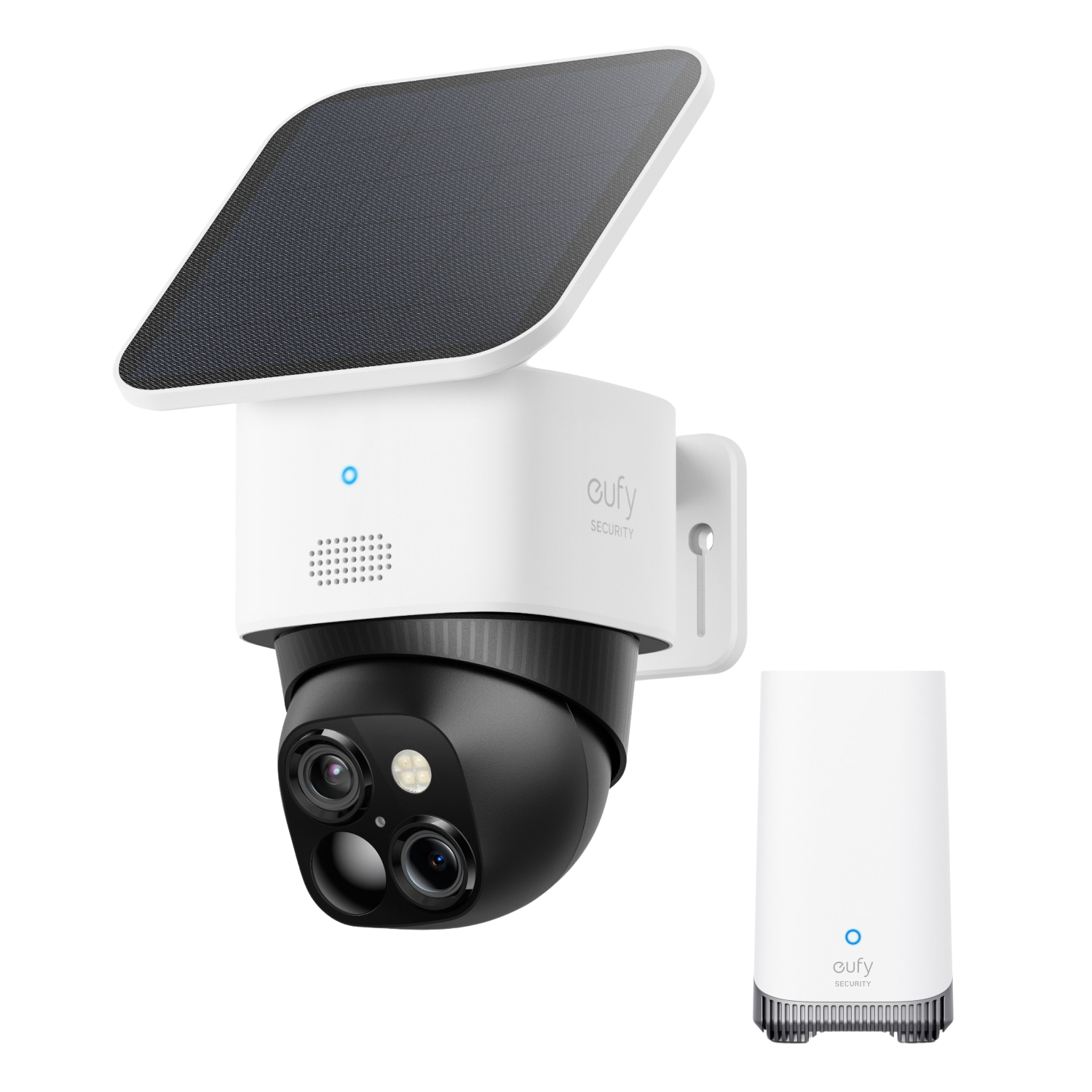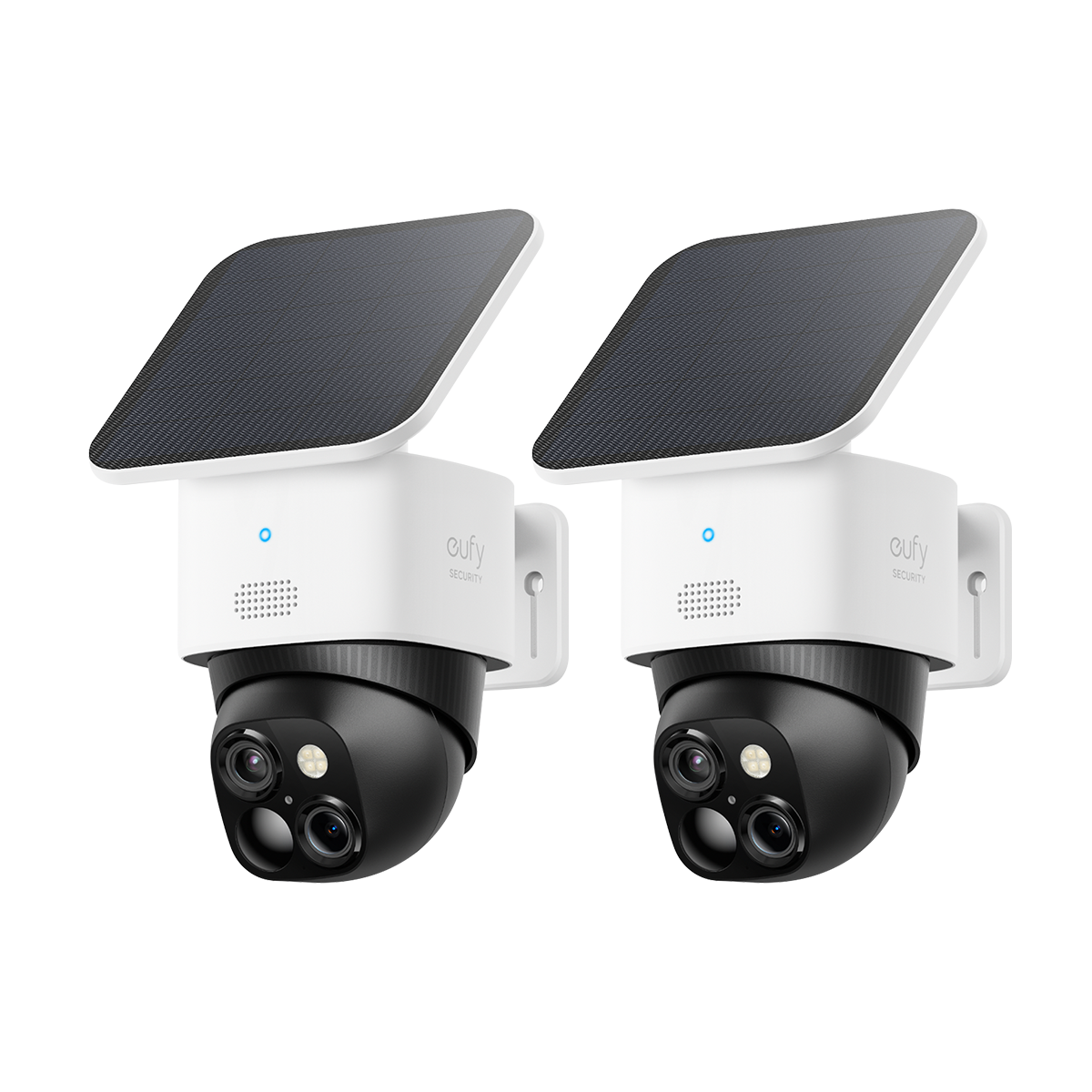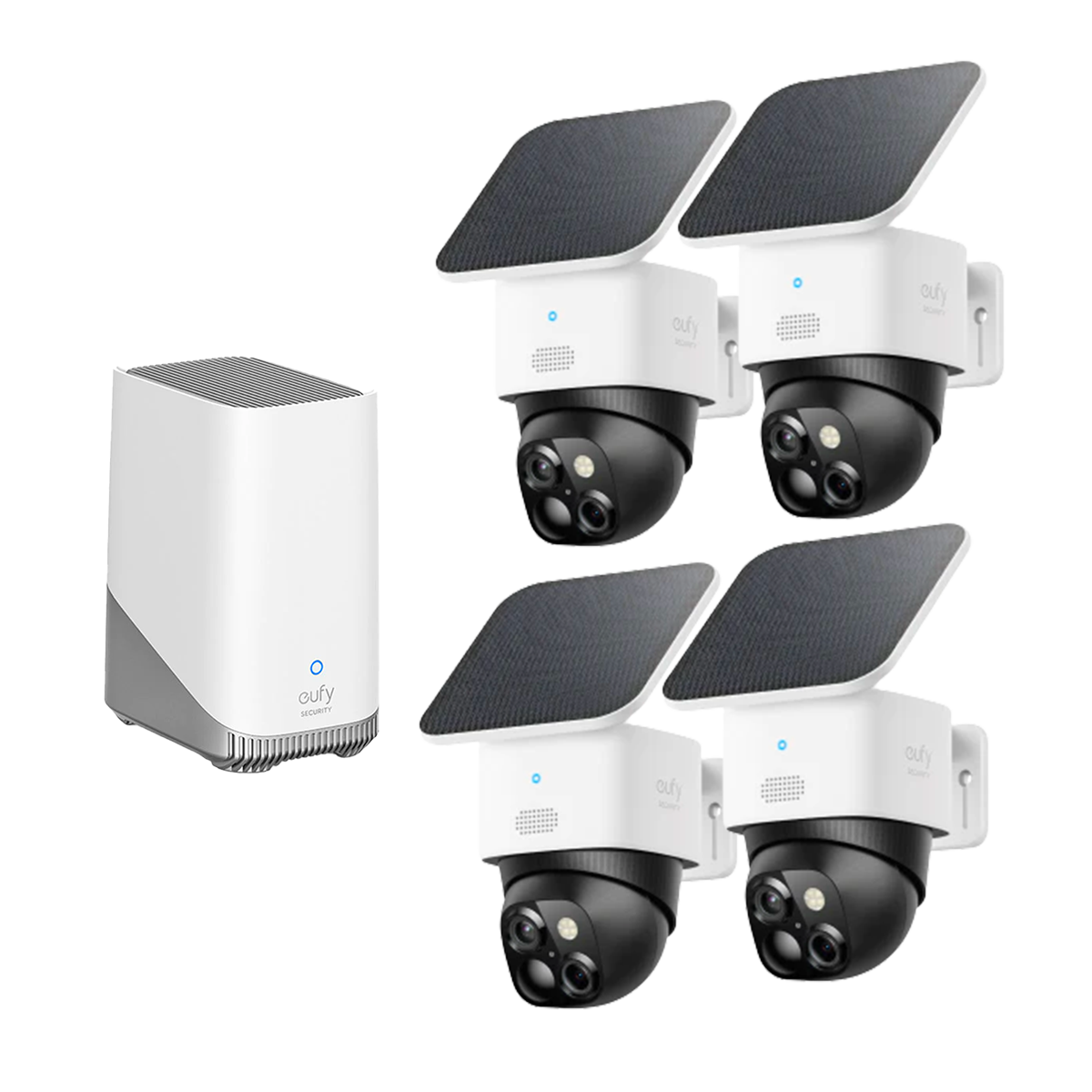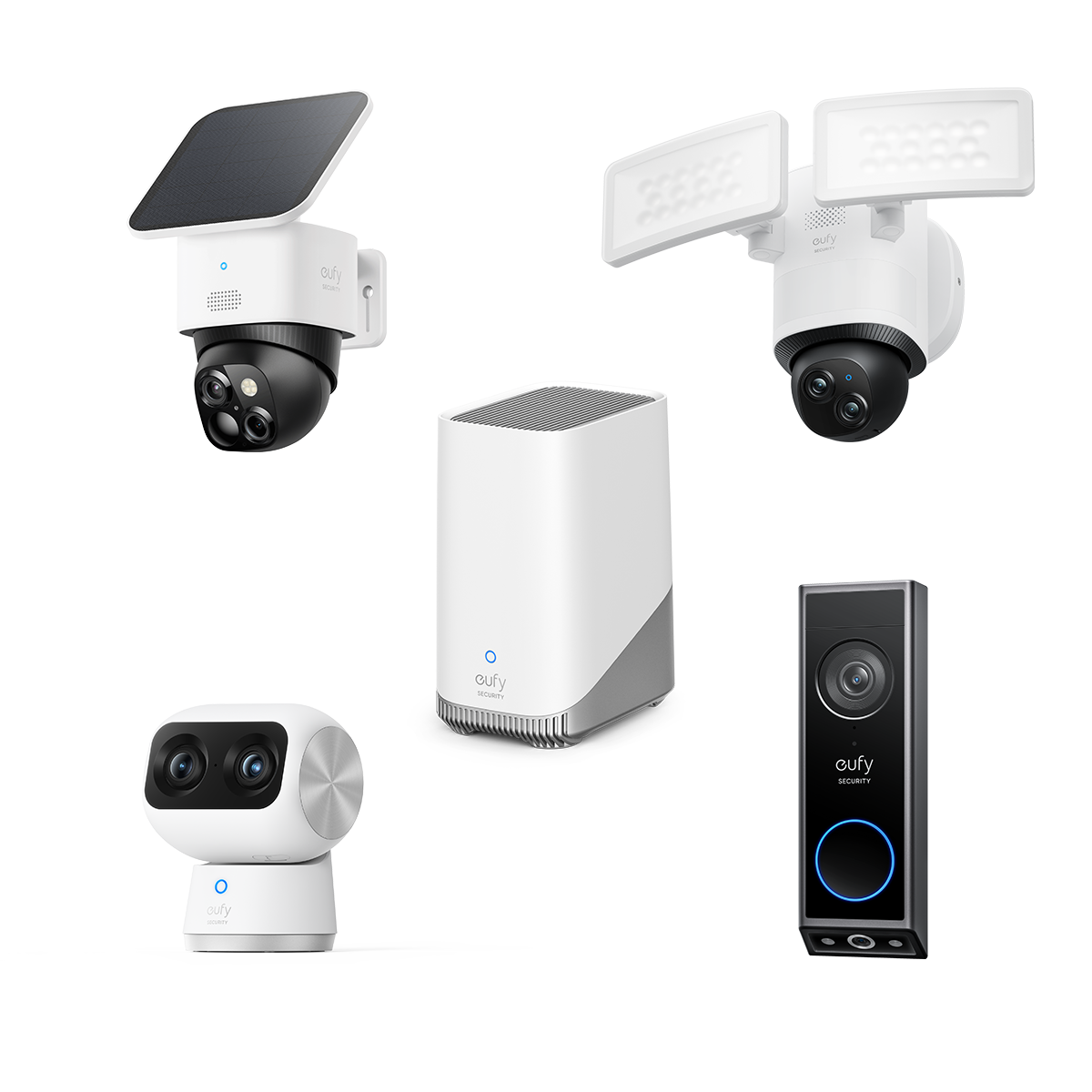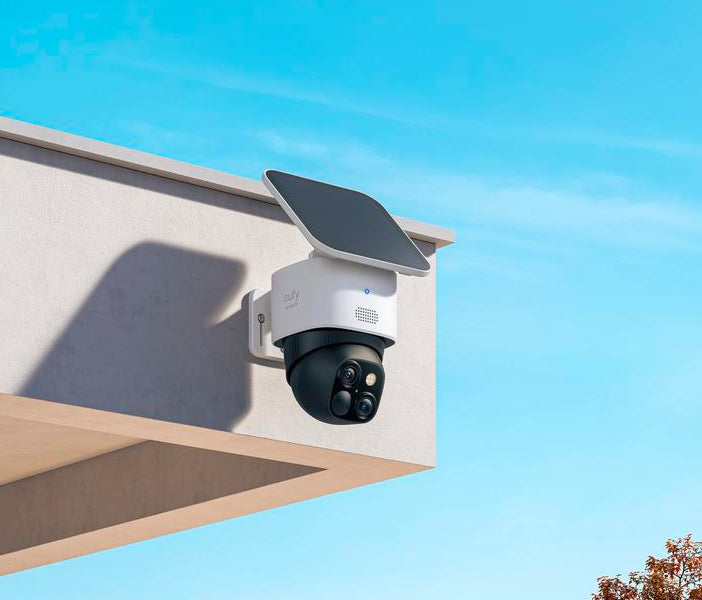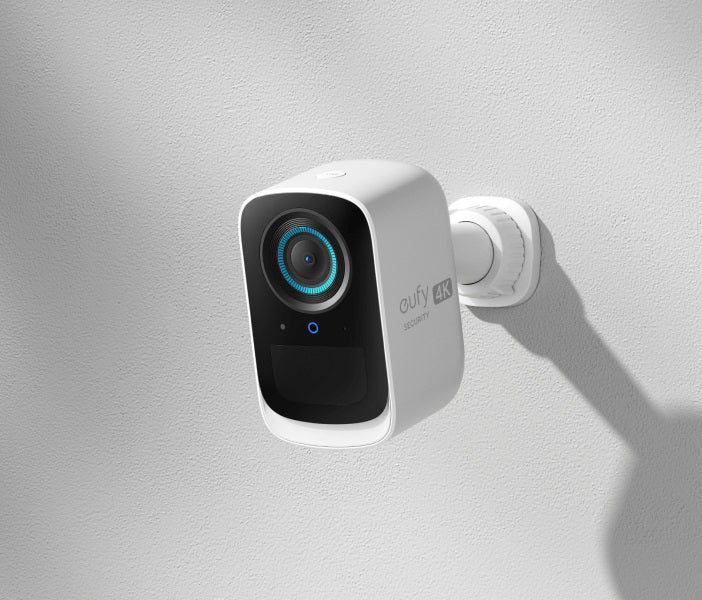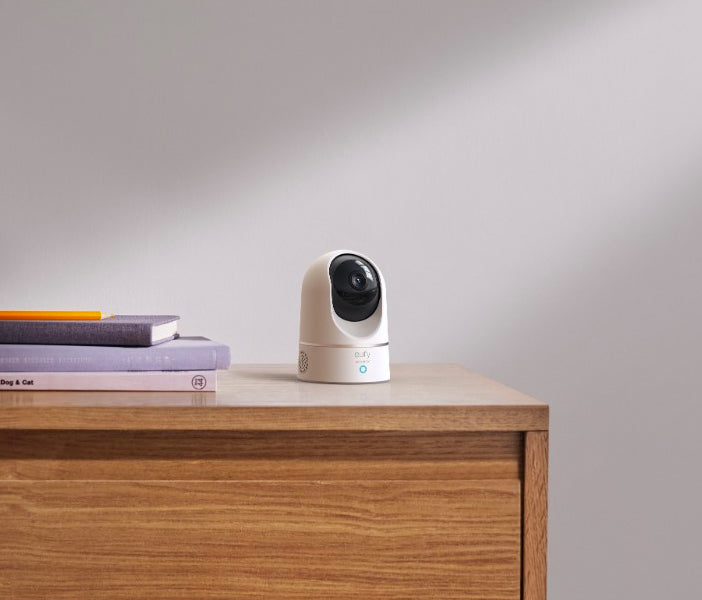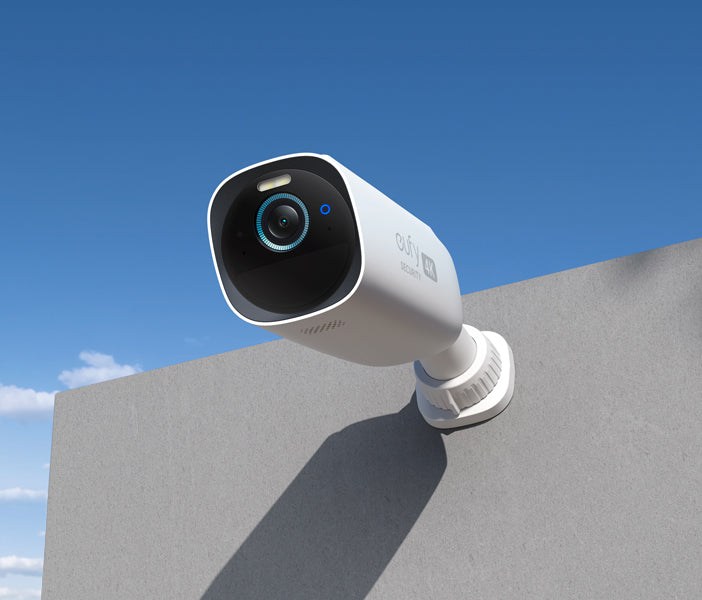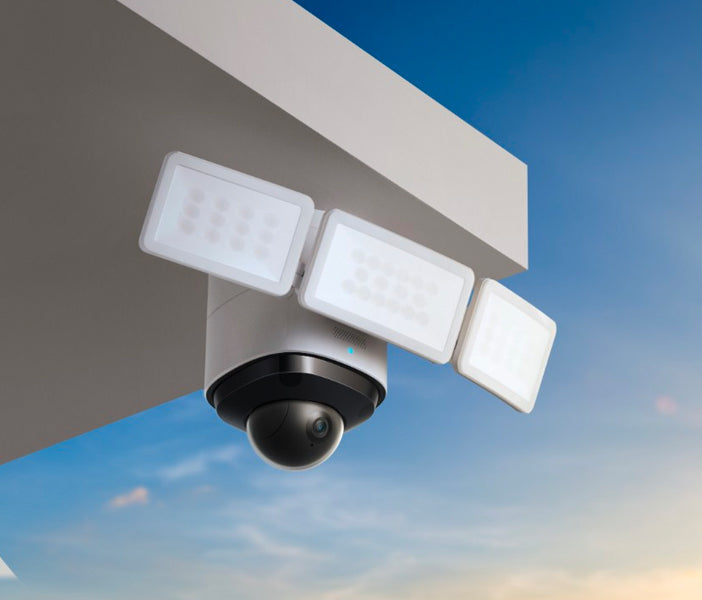Wireless Security Cameras
\49Item(s) Found- Most Recommended
- Newest Arrivals
- Price (Low to High)
- Price (High to Low)
What Benefits Can eufy Wireless Security Cameras Offer?
Crystal Clear Protection, 24/7: eufy home security cameras wireless, such as the eufy 4G LTE Cam S330, deliver up to 4K stunning resolution, ensuring crystal-clear footage. With advanced colored night vision capabilities, our wireless security cameras provide continuous protection, day or night, so you can always stay informed about your home’s security.
Effortless Smart Integration, Hands-Free Control: eufy’s best wireless security cameras work seamlessly with smart home systems like Google Assistant and Alexa. This integration makes managing your security system as easy as issuing a simple voice command, giving you hands-free control for ultimate convenience.
Freedom to Place Anywhere: Wireless and quick to install, eufy security camera wireless security cameras like the SoloCam S220 can be set up in just 5 minutes. With no need for wiring, you have the flexibility to place those portable cameras wherever they’re most needed, enhancing your home security with minimal effort.More Features on eufy Wireless Security Cameras
Solar Panel Integration: Some of eufy’s wireless cameras for house, like the SoloCam S340, feature built-in solar panels, providing a green, sustainable way to power your camera. Just 2 hours of sunlight can power your outdoor wireless security camera for a whole day, reducing the need for frequent charging and making it more energy-efficient.
AI-Powered Motion Detection: eufy’s wireless security systems feature advanced AI technology that differentiates between humans, pets, and objects. This intelligent motion detection minimizes false alarms and ensures you receive accurate alerts, allowing you to focus only on genuine security events for a more efficient monitoring experience.
Activity Zones: eufy wireless cameras allow you to set specific activity zones via the eufy Security app for targeted monitoring. By focusing on the most important areas, you can fine-tune your security settings, ensuring you only get alerts for the activity that matters most.FAQs
How does a wireless camera work?
How to install a wireless camera?
Can wireless cameras work without Wi-Fi?
How do wireless security cameras get power?
What is the difference between a Wi-Fi camera and a wireless camera?
Do I need a router for a wireless security camera?
Do wireless security cameras need to be plugged in?
Where should I place the wireless security cameras?
What wireless security camera doesn’t have a monthly fee?





